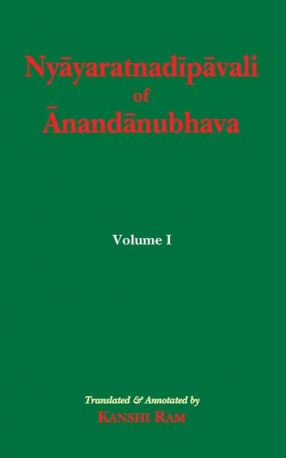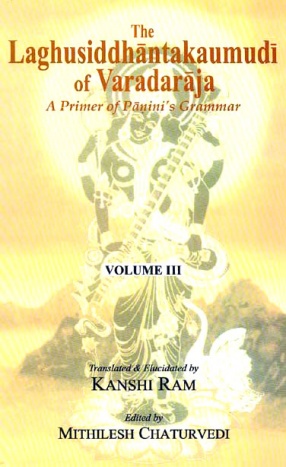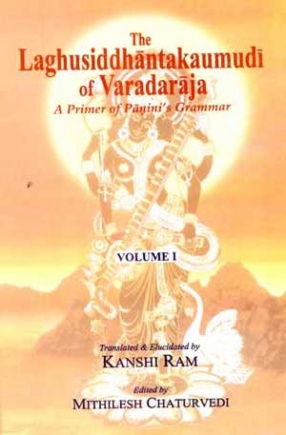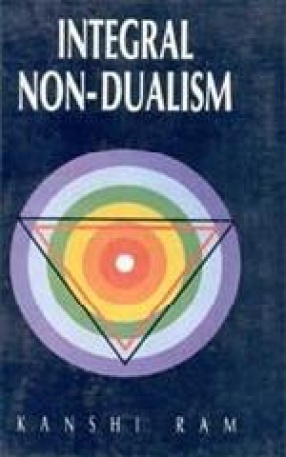
Kanshi Ram

Showing all 5 books

Nyayaratnadipavali of Anandanubhava is an Advaita classic written in a terse style using the syllogistic propositions in analysing the view-points of the rival schools of philosophy and establishing the Advaita principles. The present volume contains the English translation of the first chapter of the Nyayaratnadipavali, which is accompanied by annotations based on the Vedantaviveka, an elaborate and lucid commentary written on it by the illustrious Anandajnana ...

The present volume, which is the third and final of the three-volume-series, consists of five chapters containing the elucidated translation of 508 sutras and 69 varttikas which lay down the meaning conditions for the use of case-endings and explain the derivational process of primary (krdanta) and secondary (taddhitanta) derivates, compounds (samasa) and feminine forms. The scheme and method of exposition adopted in the preceding two volumes have been followed ...

Varadaraja wrote the Laghusiddhantakaumudi, a short version of Bhattojidiksita's Siddhantakaumudi, in order to inculcate an ability in beginners to gain access to the Astadhyayi as he claims in the invocatory verse. This work, which is the first of the three-volume project, covers 371 sutras on samjna, sandhi, subanta and avyaya prakaranas. It includes the translation of the sutra and the vrtti on it by Varadaraja, which is followed by the paraphrased sutra ...

The book is an attempt at presenting to the readers a critical analysis of the philosophy of Advaita Vedanta by comparing the views of the Bhamati and the Vivarana Schools, the two most important protagonists of Sankara’s philosophy, with a detailed study of the original texts. It begins with a survey of the historical development of Advaitic thought, starting right from the Vedas to end up with the modern period. In the successive chapters, the author delves ...

Vinanabhiksu, the author of Vijnamrtabhasya, an independent commentary on Badarayana’s Brahma Sutra, conceived a system in which both the world and the individual selves also enjoyed the status of reality and which accorded due importance to both knowledge and action as means to liberation. He believed that it is the philosophy of the unreality of the world which was responsible for man’s alienation from his environment and in order to help him overcome the ...
